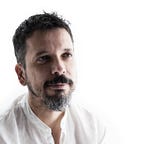Discipline and Identity
You’ve probably read about the famous “10,000-hour rule”. It is widely used by many speakers and motivators. This rule says that to achieve mastery in any field, you must be ready to commit to at least 10,000 hours of deliberate practice.
Defined by the journalist and author Malcolm Gladwell in his book “Outliers”, the 10,000-hours rule is based on a study on violinists conducted in 1993. According to that study, the best artists had dedicated at least 10,000 hours to the relentless refinement of their talent.
Over the years the 10,000-hour rule has become very popular but has also received much criticism. In fact, it seems to suggest that practice and discipline are the only ways to reach excellence, placing the person’s talent and uniqueness in the background.
Recently, psychologist Brooke Macnamara of Case Western Reserve University in Cleveland decided to repeat part of the 1993 study. Its results show that the 10,000 rule is quite an oversimplification.
In fact, among highly qualified performers, the amount of practice seems irrelevant. Every one of them has practised a lot and keep practising even once reached excellence. Therefore there must be other factors to explain why someone reaches higher levels of mastery.
Macnamara states that “When it comes to human skill, a complex combination of environmental factors, genetic factors and their interactions explains the performance differences across people.”
Therefore, discipline is fundamental, but not sufficient to determine the final result. It must be combined with some other factors that, through disciplined practice, unleash the full potential of a person.
Another study, done in the 90s, again in the field of music, can give us a hint on where we should look at.
In 1997, Professor Gary McPherson of the University of Melbourne decided to do an unconventional experiment to answer a simple question: Why do some children are quicker than others at learning an instrument?
For his study, he randomly picked 157 children between 7 and 9 years old. For years, he followed and monitored them, keeping track of their progress using biometric tests, recording their practice sessions and doing lots of interviews.
In particular, a question proved to be very insightful.
During the first interview, even before the begin of the first lesson, McPherson asked each child: “How long do you think you’ll play your new instrument?”
Based on the answers, the children were divided into three groups depending on the length of their commitment: short, medium and long term.
What surprised McPherson was that the students of the group that had foreseen a long-term commitment improved at speed four times higher than the children of the group who planned to engage only in the short term. Even if they were doing the same number of hours of practice with the same frequency.
There it was, the most decisive element in defining the speed of learning in the kids was not the IQ or the sense of rhythm, or any particular motor skills. None of that.
The defining element was the perception of themselves that each child had, even before starting to play any note.
According to McPherson’s study, what was making some students better at learning an instrument was a voice within them saying “I’m a musician” instead of just “I’ll learn to play an instrument”.
The learning here is that when our actions are an expression of our identity, they are much more powerful and sustainable in the long term. Even for 10,000 hours.
To achieve excellence and success, we must, therefore, combine identity and discipline. Identity to design the direction and discipline to pursue it until we reach the aspired success.
We must, hence, develop what Don Miguel Ruiz calls the discipline of the warrior in his book, “The Four Agreements”.
“The discipline of being ourselves, whatever happens.”
Maybe, for 10,000 hours until we fully realise who we are.
Sources
- This post has been inspired by this very insightful article on The Guardian: https://www.theguardian.com/science/2019/aug/21/practice-does-not-always-make-perfect-violinists-10000-hour-rule
- I’ve learned about McPherson’s research from this post by Samuel Tomas Davies: https://www.samuelthomasdavies.com/identity-based-habits/
- McPherson, Gary. (2005). From child to musician: Skill development during the beginning stages of learning an instrument. Psychology of Music — PSYCHOL MUSIC. 33. 5–35. 10.1177/0305735605048012.
